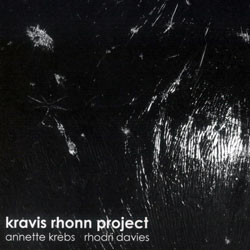
Guitarist and electroacoustic musician Krebs met harpist and electronicist Rhodri Davies in 2008 for these recordings, which Krebs then organized for these fascinating recordings.
Out of Stock
Quantity in Basket: None
Log In to use our Wish List
Shipping Weight: 6.00 units
Sample The Album:
Annette Krebs-guitar, objects, mixing board, tape
Rhodri Davies-electric harp, electronics
Click an artist name above to see in-stock items for that artist.
UPC: 5024545549522
Label: Another Timbre
Catalog ID: at15
Squidco Product Code: 11574
Format: CD
Condition: New
Released: 2009
Country: UK
Packaging: Jewel Tray
Recordd April 9, 2008 in Berlin by Annette Krebs and Rhodri Davies. Edited, mixed and mastered by AnnetteKrebs.
"Annette Krebs played together as a duo for the first time for a day at Annette's flat when Rhodri was visiting Berlin in April 2008. Annette then spent a long time editing and mastering the material, and the result is an intriguing and powerful disc whose three inter-relating tracks together present a kind of musique concrète for the 21st century.
Annette Krebs is a distinctive voice in contemporary improvisation. She has worked with many improvisers from Germany and elsewhere, but has released recordings only very selectively. As well as solos, she has produced discs with Robin Hayward, Alessandro Bosetti, Toshimaru Nakamura and Ernst Karel.
Rhodri Davies is the leading harpist in improvising and contemporary music circles. He has extended the language of his instrument in consistently radical ways and has had numerous works composed for him. He has worked with most of the leading names within improvised music, and has recently recorded discs with Taku Unami, Phil Minton, Lee Patterson, Toshimaru Nakamura, Lucio Capece, John Butcher and many others."-Another Timbre

The Squid's Ear!
Artist Biographies
• Show Bio for Annette Krebs "... [Annette Krebs] wanted to play the guitar since she was four years old, but only eleven years later this dream came true. Her first teacher was a jazzmusician who led her more practically and gave her the basis of the most varied styles. From the beginning she made improvisational and compositional songs about the school and the things around her. At sixteen she wrote her own protestsongs, played a little rock, a little this and that. When the time for studying came, she chose classical guitar. Jazz and modern music did not interest them at first, modern art was even more so: she painted, was fascinated by Dadaism, Schwitters' Merz and others. She tried to play what she painted, to paint what she was playing. Of the fact that the other were similar, she had no idea at that time. In Frankfurt, where she at that time studied guitar, she also tried to penetrate the authentic interpretation of baroque music, discovered the European tradition and composed intensively. At the same time, however, she lured the abstraction - the pictorial as well as the musical. In her own compositions she stayed with pure tones, from which she formed her "abstract" melodies. Now Frankfurt is a very lively city, and Annette Krebs took everything that was going on around her: concerts of contemporary music, jam sessions and joint improvisations and debates with other musicians. When she finally moved to Berlin, she began to break out of the world of classical music. First, she tried to put her guitar in an informal context, playing classical repertoire in pubs, which was almost surreal, but she soon sought another The instrument was accessible to the instrument itself. She held it between the knees like a violoncello and reduced the number of strings. So she started to use the electric guitar as well. She tirelessly studied the possibilities of other forms of play, Until she finally put the guitar on the table. This had quite practical advantages: All "boxes" and the mixing console were so at hand. Similar to Keith Rowe, she developed a certain "sculptural" approach to her instrument. But the resulting distance began to disturb her with time, so she put the guitar on her knees to strengthen the immediate contact with the instrument. Although the gameplay remained basically the same, the gameplay was quite different; The instrument was so much easier to master. The range of instrumental and additional sounds stretched them in all directions - even those who see Annette Krebs play can hardly say which are from their guitar and which not. In the multicultural and musically vibrant Berlin she joined the thriving improvisation scene. Chris Dahlgren, Chris Dahlgren, Chris Dahlgren, Rhodri Davies, Jim Denley, Axel Dörner, Robin Hayward, Marcus. The list of people with whom they have collaborated is impressive: Chris Abrahams, Natasha Anderson, Alessandro Bosetti, Burkhard Beins Heike, Charlotte Hug, Sven-Ake Johansson, Christoph Kurzmann, Sachiko M, Coffee Matthews, Wade Matthews, Chico Mello, Toshimaru Nakamura, Andrea Neumann, Bhob Rainey, Taku Sugimoto, Luca Venitucci, Michael Vorfeld, Marc Wastell, Steffi Weismann, Otomo Yoshihide ... In the year 2000 the seven-head ensemble phosphorus, In which Annette Krebs on Burkhard Beins (drums), Axel Dörner (trumpet and laptop), Robin Hayward (tuba), Andrea Neumann ("Inside-Piano"), Michael Renkel (acoustic guitar, laptop) and Ignaz Schick (electronics) , Gramophone). They all combined the need for increased concentration of musical expression and the effort to achieve clarity and transparency. In place of dense sound, silence was the starting point. The sound events and phenomena were carefully positioned in the imaginary space and meticulously measured their relationships (volume, character, sound start and end, contrasts, transitions, and collisions) and precisely measured with a view to the balance of the whole. Since these sounds were generally very quiet, a wide spectrum " Outside of phosphorus, Annette often appears alone or with other musicologists. The Japanese guitarist Taku Sugimoto or the Italian saxophonist Alessandro Bossetti are close to her. For several years she appeared in the duo with Andrea Neumann, in Vienna she plays with Christoph Kurzmann and Burkhard Stangl. She also works with Sandra Becker or Steffi Weissmann on their video projects. Together with the latter, for example, she has created a funny variation on the subject of "alienation / deprivation" with the title Le vol 1-3, a parody on pop music videos, in which the two authors make a cheerful raid in the department store to the sounds of "recycling music". The music of Annette Krebs is full of opposing qualities: On the other hand, she is "ascetic" - she works with large portions of silence and delicate noises. On their CD Guitar Solo (Fringes Recordings, 2002), the first normal guitar sound can only be heard after about six minutes. On the other hand, it is very rich - it works not only with differently transformed guitar sounds, but also with laptop, radio or cassette recorder, from which, inter alia, fragments of the real world (talks, different sound environments, etc.). Annette Krebs teaches us to listen to what we have long known. Even the most common sound is re-evaluated. Her music slips smoothly into the mysterious gap between life and art that Robert Rauschenberg once spoke of. Annette Krebs is a charismatic personality that is always good for a surprise. Their game is full of unpredictable interruptions, sudden outbursts and trembling excitement." ^ Hide Bio for Annette Krebs • Show Bio for Rhodri Davies "Rhodri Davies was born in 1971 in Aberystwyth, Wales and now lives in Gateshead in the northeast of England. He plays harp, electric harp, live-electronics and builds wind, water, ice and fire harp installations. He has released four solo albums: Trem, Over Shadows, Wound Response and An Air Swept Clean of All Distance. His regular groups include: a duo with John Butcher, Common Objects, HEN OGLEDD: Dawson - Davies, a trio with David Toop and Lee Patterson, Cranc, The Sealed Knot and a trio with John Tilbury and Michael Duch. In 2008 he collaborated with the visual artist Gustav Metzger on 'Self-cancellation', a large-scale audio-visual collaboration in London and Glasgow. New pieces for solo harp have been composed for him by: Eliane Radigue, Phill Niblock, Christian Wolff, Ben Patterson, Alison Knowles, Mieko Shiomi and Yasunao Tone. In 2012 he was the recipient of the Foundation for Contemporary Arts, Grants to Artists Award." ^ Hide Bio for Rhodri Davies
11/20/2024
Have a better biography or biography source? Please Contact Us so that we can update this biography.
11/20/2024
Have a better biography or biography source? Please Contact Us so that we can update this biography.
Track Listing:
1. traguar 21:25
2. jailom 12:04
3. ssronck 12:08
Improvised Music
Electro-Acoustic
Electro-Acoustic Improv
Organized Sound and Sample Based Music
European Improv, Free Jazz & Related
London & UK Improv & Related Scenes
Free Improvisation
Duo Recordings
Objects and Home-made Instruments
Search for other titles on the label:
Another Timbre.

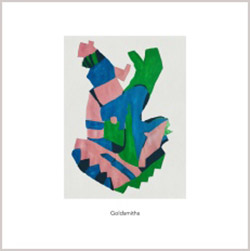

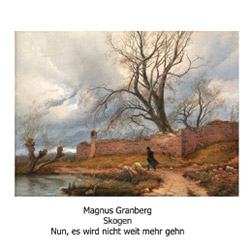
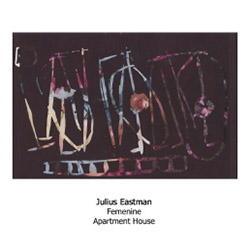
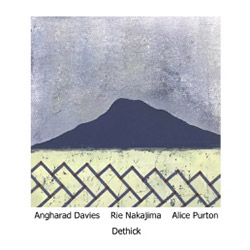
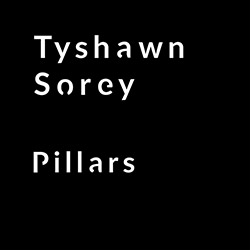


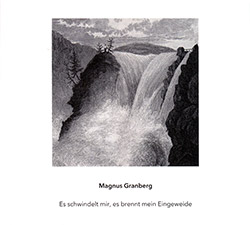










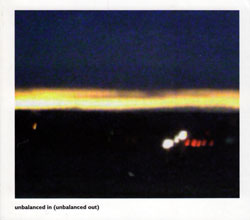
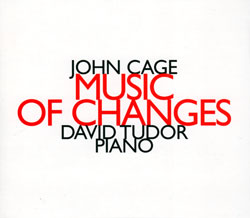
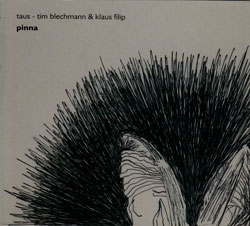
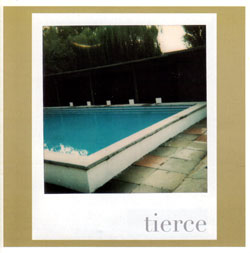
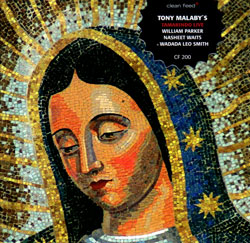
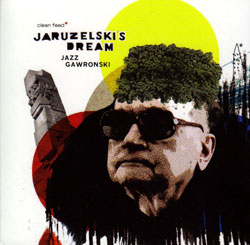


![Guy, Barry / Ken Vandermark: Occasional Poems [2 CDs]](https://www.teuthida.com/productImages/misc4/34849.jpg)
![Novoa / Carter / Mela Trio: Vol.1 [VINYL]](https://www.teuthida.com/productImages/misc4/35236.jpg)


![Elephant9 : Mythical River [VINYL]](https://www.teuthida.com/productImages/misc4/34624.jpg)
![Evans, Peter (Evans / Eldh / Black): Extra [VINYL]](https://www.teuthida.com/productImages/misc4/35279.jpg)

![McPhee, Joe: Straight Up, Without Wings [BOOK]](https://www.teuthida.com/productImages/misc4/35454.jpg)
![Jeck, Philip: rpm [2 CDs]](https://www.teuthida.com/productImages/misc4/35455.jpg)













![Barker / Parker / Irabagon: Bakunawa [VINYL]](https://www.teuthida.com/productImages/misc4/35533.jpg)
![Blaser, Samuel / Marc Ducret / Peter Bruun: Dark Was The Night, Cold Was The Ground [VINYL 10-inch]](https://www.teuthida.com/productImages/misc4/35492.jpg)








![Warren, Kenny (Warren / Hoffman / Ellman): Sweet World [VINYL]](https://www.teuthida.com/productImages/misc4/35451.jpg)




![Blake, Ran / Dave Knife Fabris: Live Amsterdam 2006, First Visit [CD + POSTCARDS]](https://www.teuthida.com/productImages/misc4/35275.jpg)













![DNS: Taking Big Bites Of The Khandas Three Cafes Deep [2 CDs]](https://www.teuthida.com/productImages/misc4/35334.jpg)




![Cleaver, Gerald: The Process [VINYL]](https://www.teuthida.com/productImages/misc4/34966.jpg)




![Alva Noto: HYbr:ID II [VINYL 2 LPs]](https://www.teuthida.com/productImages/misc4/35201.jpg)

![Baron, Derek / Luke Martin: Distinct and Concealed [CASSETTE + DOWNLOAD]](https://www.teuthida.com/productImages/misc4/35079.jpg)

![Lyle, Erica Dawn : Colonial Motels [CASSETTE + DOWNLOAD]](https://www.teuthida.com/productImages/misc4/35080.jpg)









![Sanna, Claudio: Compositori Sardi Contemporanei II [2 CDs]](https://www.teuthida.com/productImages/misc4/35317.jpg)







![Zurria, Manuel: Fame di Vento [3 CDs]](https://www.teuthida.com/productImages/misc4/35167.jpg)

![Granberg, Magnus / Nattens Inbrott / Skogen: Holde Traume, Kehret Wieder! [2 CDs]](https://www.teuthida.com/productImages/misc4/35038.jpg)
![Frey, Jurg: Outermost Melodie [2 CDs]](https://www.teuthida.com/productImages/misc4/35039.jpg)

![Pavone, Jessica: Reverse Bloom [VINYL]](https://www.teuthida.com/productImages/misc4/34895.jpg)




![Modney (Modney / Wooley / Gentile / Roberts / Pluta / Symthe / ...): Ascending Primes [2 CDs]](https://www.teuthida.com/productImages/misc4/34852.jpg)









![Elephant9 with Terje Rypdal: Catching Fire [VINYL 2 LPs]](https://www.teuthida.com/productImages/misc4/35355.jpg)
![Deerlady (Obomsawin, Mali / Magdalena Abrego): Greatest Hits [VINYL]](https://www.teuthida.com/productImages/misc4/34876.jpg)




![Haino, Keiji: Black Blues [2 CDs]](https://www.teuthida.com/productImages/misc4/35109.jpg)



![Surplus 1980: Illusion of Consistency [CD]](https://www.teuthida.com/productImages/misc4/35069.jpg)
![Staiano, Moe: Away Towards the Light [VINYL + DOWNLOAD]](https://www.teuthida.com/productImages/misc4/35037.jpg)



![Caveira (Gomes / Sousa / Abras / Ferrandini): Ficar Vivo [VINYL]](https://www.teuthida.com/productImages/misc4/34643.jpg)
![Gregg, J. J. / David Van Auken: Lunar Prairie [CD w/ DOWNLOAD]](https://www.teuthida.com/productImages/misc4/34611.jpg)

![Coultrain: Mundus [VINYL]](https://www.teuthida.com/productImages/misc4/32439.jpg)
![Mattin: Songbook #6 [VINYL]](https://www.teuthida.com/productImages/misc4/27317.jpg)
![Punkappella: Wake Up [7-inch VINYL]](https://www.teuthida.com/productImages/misc4/17519.jpg)
![Residents, The: WARNING: UNiNC.: Live And Experimental Recordings 1971-1972 [VINYL 2 LPs]](https://www.teuthida.com/productImages/misc4/31521.jpg)
![Coultrain: Phantasmagoria [VINYL]](https://www.teuthida.com/productImages/misc4/30142.jpg)
![Lennon, Sean Ono: Asterisms [VINYL]](https://www.teuthida.com/productImages/misc4/34517.jpg)

![Coley, Byron: Dating Tips for Touring Bands [VINYL]](https://www.teuthida.com/productImages/misc4/17906.jpg)

![Lost Kisses: My Life is Sad & Funny [DVD]](https://www.teuthida.com/productImages/misc4/lostKissesDVD.jpg)